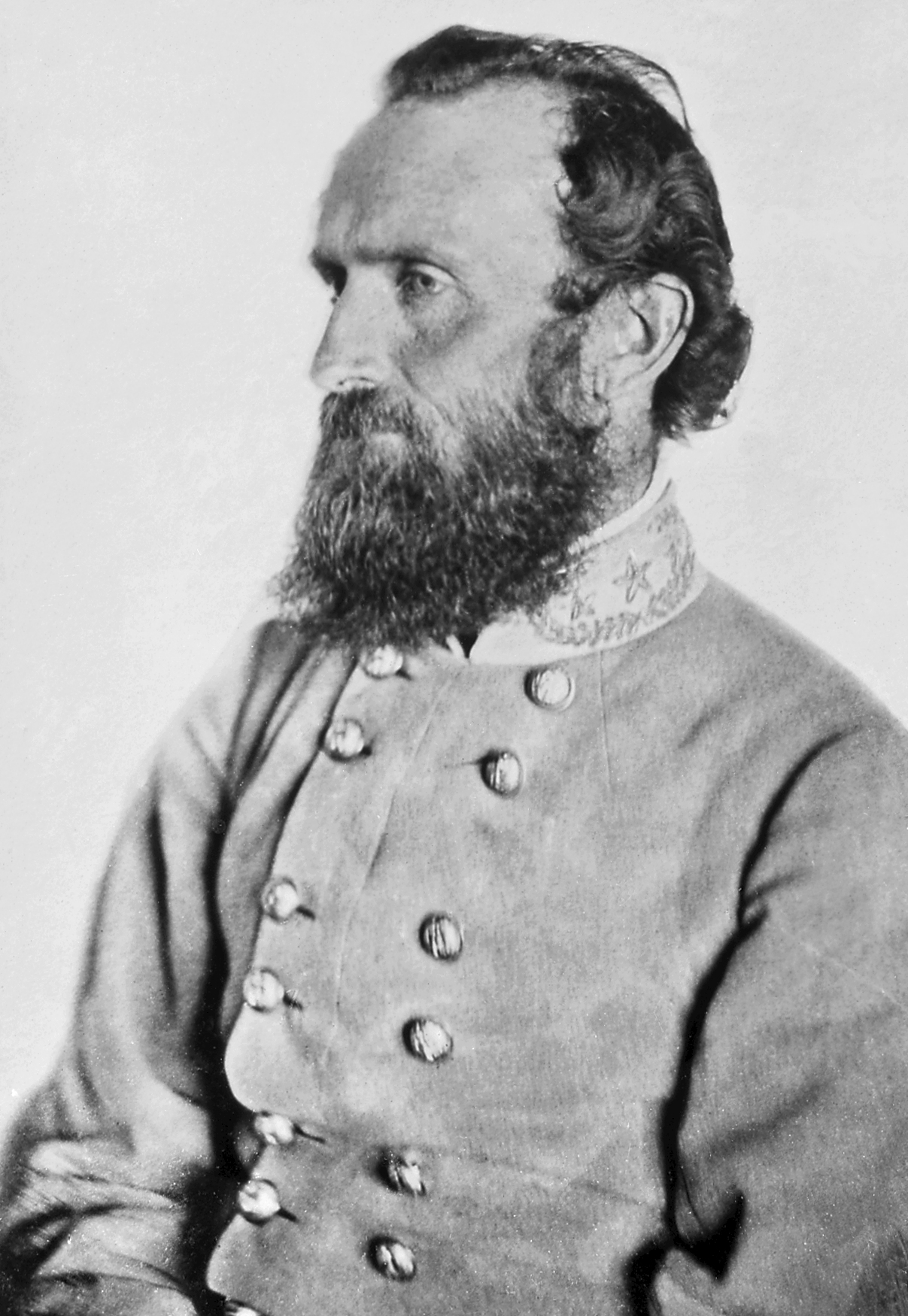
Portrait of Stonewall Jackson by J. W. King, 1864AD.
Yesterday, 10 May, marked the 150th Anniversary of the death of Confederate Lieutenant General Thomas J. "Stonewall" Jackson. Jackson was the most trusted lieutenant of General Robert E. Lee, and a bold commander who was famous for his tremendous part in the victories of the 1862 Shenandoah Valley Campaign, the Second Battle of Manassas, and the Battle of Chancellorsville, amongst others.
Jackson was born in Clarksburg, Virginia (now in the state of West Virginia) on 21 January 1821. He had a difficult childhood, with his father dying in 1826, and his mother died in 1831 after remarrying. In the end, the poorly educated Jackson was accepted by West Point in 1842, launching his military career.
Thomas Jackson's first service was in the Mexican-American War, where he would meet Robert E. Lee. Jackson's initiative earned his two brevet promotions. After the war, in 1851, Jackson accepted a post at the Virginia Military Institute in Lexington, Virginia. Though certainly competent, his manner was not so popular, and he was dubbed "Tom Fool" by his students. He was married in 1853, but his wife died from complications from delivering a stillborn child the next year. Jackson would marry a second time in 1857 to Mary Anna Morrison.

Statue of Stonewall Jackson at Manassas National Battlefield in Virginia.
With the secession of Virginia and outbreak of hostilities in 1861, Thomas Jackson would take command of a brigade of volunteers from the Shenandoah Valley of Virginia -- to be known as the Stonewall Brigade. Of course, it would be on 21 July 1861, when the brigades of Bee and Bartow were collapsing in the first phase of the First Battle of Manassas that Jackson received his nickname. Jackson's Brigade became a rally point for the other Confederate units, and General Bee is quoted as saying: "There is Jackson standing like a stone wall. Let us determine to die here, and we will conquer. Rally behind the Virginians!" The name would stick for both man and brigade.
In the Spring of 1862, Jackson successfully defeated parts of three Union armies in the Shenandoah Valley to not only protect "the breadbasket of the Confederacy" but tie up a host of troops that might have otherwise assisted McClellan's drive for Richmond. Jackson's performance that summer during the Seven Days' Battles where less impressive.
The summer of 1862 saw Jackson take a corps behind the Union army and contribute to the great victory at the Second Battle of Manassas. Antietam and Fredericksburg would follow with him demonstrating himself as a trusted and competent lieutenant to Robert E. Lee as one of the corps commanders of the Confederate Army of Northern Virginia.

A photo taken of Jackson the month before his death. 26 April 1863.
The spring of 1863 would be his last -- but his 10 mile flank march around the Union Army of the Potomac at the Battle of Chancellorsville was a brilliant stroke that defeated an army that outnumbered the Southern force 2 to 1. Tragically, on the evening of 2 May 1863, while scouting beyond his own lines, Jackson was accidentally shot by his own men upon his return. He would lose his left arm, and, with pneumonia setting in, die on 10 May 1863 in Caroline County, Virginia.

The House where Jackson died in Guinea Station, Caroline County, Virginia.
Jackson was a zealous man of a deep Presbyterian belief and his devotion to religion as he knew it was unquestionable. He is quoted as saying, when asked about he calm on the battlefield: "My religious belief teaches me to feel as safe in battle as in bed. God has fixed the time for my death. I do not concern myself about that, but to be always ready, no matter when it may overtake me. ... That is the way all men should live, and then all would be equally brave."
He is buried in Lexington, Virginia.
The Friday before Dr. Reverend Martin Luther King, Junior Day, is Lee-Jackson day in the Commonwealth of Virginia.
For a few Stonewall Jackson resources, note these sites:
From VMI where he taught:
http://www.vmi.edu/archives.aspx?id=3747
From the house and museum dedicated to him:
http://www.stonewalljackson.org/
The website of Chancellorsville Battlefield where he was wounded:
http://www.nps.gov/frsp/chanville.htm
Finally, the site of the "Stonewall Jackson Shrine," the site of his death:
http://www.nps.gov/frsp/js.htm
Live well!
This comment has been removed by the author.
ReplyDeleteThank you so much for this! I find that quote of his, concerning how one should face death, striking in its profundity. I hope to remember it.
ReplyDelete